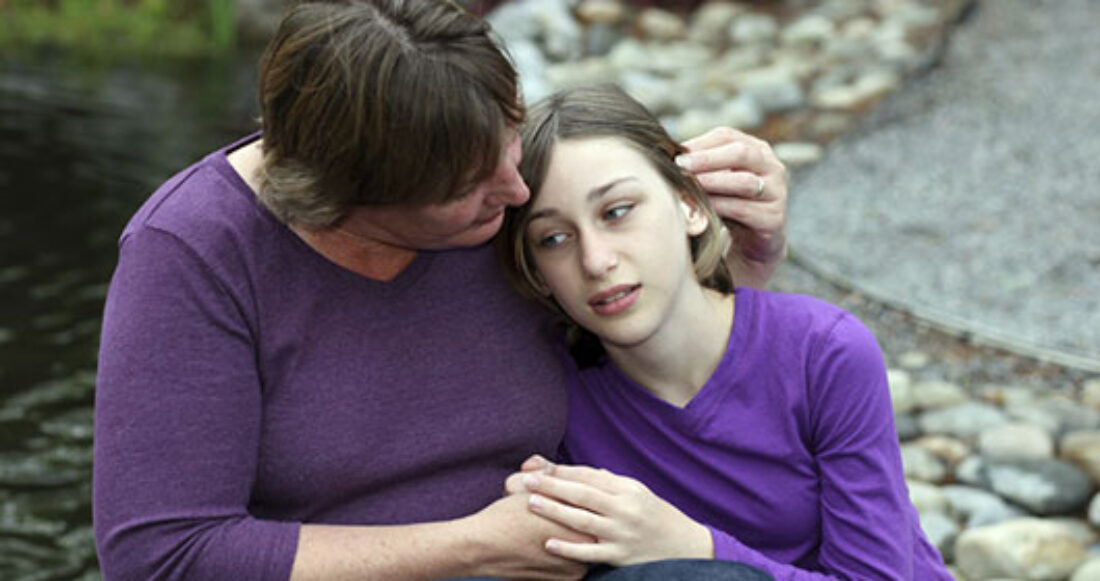Expert Input: What It’s Like to Deliver New Training Series on Kinship Care

The Annie E. Casey Foundation has released a video training series, “Engaging Kinship Caregivers” led by trainer, consultant and family therapist Joseph Crumbley. Developed for child welfare agencies, the five-video series is designed to help staff members work more effectively with kinship caregivers. A complementary discussion guide aids program directors, supervisors and trainers in enriching dialogues during individual and group sessions.
In this post, Jennifer Miller, founding partner of ChildFocus, reflects on her experience administering the training series to child welfare staff.
Q: Can you tell us a bit about ChildFocus and your work?
Miller: ChildFocus is a national child welfare consulting firm that supports nonprofits, public agencies and foundations in the areas of policy advocacy, strategic planning, organizational development, and peer learning and consultation. We founded ChildFocus over a decade ago. We came together around a shared passion for connecting people, programs and policy to make a difference for children and families.
Q: What are some challenges that child welfare systems face in finding and keeping kinship caregivers?
Miller: First and foremost, it is critical for child welfare agencies to believe in kinship care. It’s not just a placement option — it’s a philosophy.
While most frontline staff have a strong understanding of what foster parents need in order to provide nurturing care for children in foster care, these same staff members are less adept at managing the particular needs of kinship caregivers. Training that differentiates the kinship caregiving experience from foster parenting is critical and can help staff effectively work with kinship families.
To do this, child welfare agency staff need a fundamental understanding of the unique experiences of kinship caregivers and the complex family dynamics associated with stepping in for children who have been removed from their parents. Staff also need to understand how to support kinship caregivers in a way that is different from non-kin foster parents.
Q: You recently conducted a training using the Foundation’s new kinship care video training. How did it go?
Miller: ChildFocus was thrilled when the Casey Foundation decided to develop a video series that would help child welfare agency staff support caregivers who are stepping in to care for a relative’s child.
The video series is the perfect tool because it presents critical concepts that are clear, compelling and easily adaptable to everyday practice. Most importantly, the training is consistent with the overriding philosophy that children do best with their own families. During our training in Utah, private providers who had never worked with kinship caregivers enthusiastically participated in the group activities. Afterward, many shared that they felt better prepared to anticipate and respond to the needs of kinship caregivers. As a result, the agencies — which are considering doing more in the area of kinship care — recognized a need for additional training and support as their staff begin to work with kinship families.
Q: How did you use the series?
Miller: We used the video series in a Kinship 101 training, which we conducted for three private foster care agencies that are located in a state where there is interest in having private agencies do more to meet the needs of kinship families. During the training, we introduced two of the videos, had a discussion about the audience’s reaction to the videos, and used case studies to identify and reinforce some of the concepts that the videos conveyed.
The training participants gave excellent feedback. They spoke about how the videos and subsequent dialogue helped them become more attuned to what kinship caregivers were experiencing and what strategies they could use to help caregivers move forward in a way that was in the best interests of the children in their care.
Q: Who do you think will benefit most from this series?
Miller: This video series is a powerful tool for program directors, supervisors and trainers of public and private child welfare agencies who strive to equip frontline workers to support kin caregivers during times that can be especially stressful for children and families.
Q: With tools and resources like the video series are available, what’s your outlook on kinship care as you look to the future?
Miller: Kinship families are an incredibly valuable resource for children in foster care. ChildFocus is optimistic that, over the next decade, we will see an increasing proportion of children in foster care living with kin. But kinship care cannot be done on the cheap, and kinship families need to feel that they have broad support to help them succeed. This video series is a critical resource that can enable child welfare agencies to strengthen their approach to engaging and supporting kin families.
Q: Are there any other takeaways you found valuable about the video series?
Miller: After conducting our first training, we are convinced — now more than ever — that the videos provide an extraordinary opportunity for supervisors and program managers to deepen discussions about kinship cases with their frontline workers, enhance their supervision of strength-based approaches to kinship families, and create room for workers to express concerns about the safety and well-being of children in kinship care. We are excited about the potential for the videos to spark even more action on behalf of kinship families.






